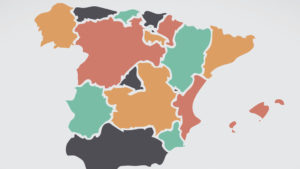The question we must ask ourselves is: What can we be missing about depopulation?
Currently, there is a wide variety of field studies, reports and statistical data referring to depopulation, which allow us to approach the phenomenon from different perspectives. However, whenever a multifactorial process is studied, in addition to analyzing what is on the table, we must ask ourselves what are the elements that we can be ignoring, and open the possibility of exploring other edges.
This article seeks to expose such doubt and raise the possibility that there is an elephant in the room of depopulation that no one is looking at.

There is a fact that is very encouraging, and at the same time very disconcerting: currently, there are more people working remotely and with the possibility of living anywhere than ever before in history This is undoubtedly a great opportunity for those of us who work trying to reverse depopulation, but is at the same time a great enigma: Why are they not migrating to the villages?
When evaluating the current state of the working market, the available data is categorical. According to the latest survey of UpWork, conducted in the United States (a country that also experiences rural depopulation) the 36% of workers are remote workers (which is equivalent to 59 million people).
Remote North American Workers
Even more interesting is the fact that this percentage is a result of a growing trend, and that when segmenting by age range a clear prominence is observed in youth, which suggests that this trend will continue to rise over time.
Remote North American Workers by Age Range
A fact that is very interesting for those of us who study depopulation is that withing this universe of workers 21% manifest that they would be willing to move to rural areas..
Workers willing to move by type of city
Which brings us to an elementary question: Why do not they do it?
When facing with this question, we realize that we run out of data.The reality is that we do not know. We do know that the number of remote workers is constantly growing, and that a portion of them is even willing to migrate to rural areas, but we ignore the reason why they do not do it.
On the other hand, many of reasons why the inhabitants who reside in the towns decide to leave are very well studied. This evidences the lack of a comprehensive approach, in which the sector of society constituted by young remote workers with great potential for migrating to rural areas can be considered as a principal factor to tackle depopulation.
When analyzing past and current policies regarding depopulation there is a general impression that they are part of an epic in which there is a continuous effort to paddle against the current, which makes it very difficult and exhausting. In this article, we propose to take the example of the Aikidō, which is a Japanese martial art, which by thrives on the strength of his opponent to turn it into a self-strength. By doing this, there is no fight against the other, in our case reality, but we can use the existing reality in your favour. Making a simple analogy with depopulation, the focus should not be on the fight against depopulation, but on using the potential of remote workers who already have the desire to inhabit the rural areas to achieve it, and thus win the battle.
In any research investigation it is fundamental to make sure that all possible hypotheses are identified and explored. In this case, there is a clear lack of information, and it is of utmost importance to generate more data to evaluate if there is an open window of opportunity to reverse depopulation.
Remote workers are a larger reality than what is often perceived. In the world's largest economy, the United States, it already represents 5% of GDP, which is higher than construction, and everything indicates that this growth will continue to climb.
This article seeks to evidence that there is an unexplored field to investigate. It would be very interesting to perform studies on this specific segment of society constituted by young remote workers who intend to inhabit rural areas. It is key to understand their motivations for willing to live in rural areas, and at the same time the reasons stopping them from taking that initiative. This kind of analysis can be a tipping point in how we address the re-population of rural areas.
Depopulation is a global phenomenon that affects countries as dissimilar as Japan, the United States or Spain. Interestingly, the digitization of work is also a global phenomenon. For this reason, exploring, generating new data and providing new analysis on these two phenomena can make possible the intersection of these two global trends and can enable finding a global solution to a global problem.






